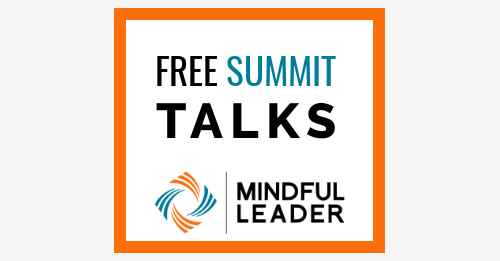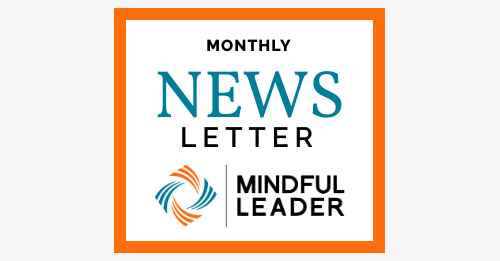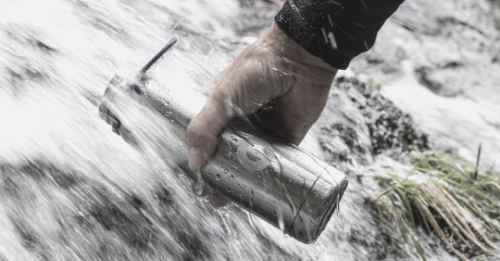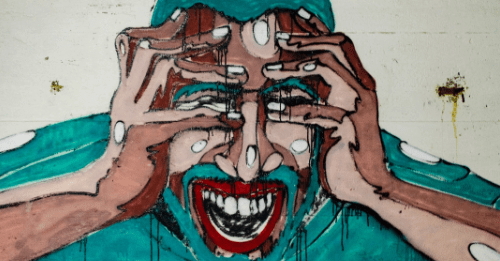Blog
Courage: The Bridge to Higher Awareness
By John J. Murphy
As an author and business consultant specializing in leadership development, mindfulness, and transformational culture change for the past 34 years, I have done a considerable amount of research. Countless experts, teachers, scientists, and influential leaders have given me facts, data, insights, and information that have forever changed my life and the lives of my clients. One of the most intriguing examples of this was David Hawkins, MD, PhD. Dr. Hawkins introduced me to Th…
Case Study: Mindfulness in Action at Aetna
August Monthly Newsletter
FINAL DISCOUNT SPECIAL: Save up to 33% on the 7th Mindful Leader Summit
|
Feel you have nothing left? 3 Practices to replenish
By Joy Reichart, guest contributor, New Ventures West
“I have nothing left.”
It’s a sentiment that’s been in our shared consciousness for a long time, and recently I’ve started to hear folks actually name it. Maybe you have too.
World events have taken their toll, and many of us find ourselves with very little energy, resources, spirit left in us. The pandemic fomented a sudden shift in pace and orientation that revealed much of what is outdated and imbalanced in our lives, and in the world.…
10 Effective Methods to Soothe an Anxious Brain
By Due Quach, guest contributor
 1. Accept that anxiety is biological
1. Accept that anxiety is biological
The first step in managing anxiety in a healthier manner is to make peace with the fact that having anxiety is natural and normal. According to evolutionary psychology, human psychological traits like anxiety exist because they serve a function. Anxiety signals that we believe the outcome of a situation in which there are factors beyond our control, is very important to our survival, social status, happiness, or well-being. A…
Moving from Fear to Presence, Connection, and Collaboration
By Kathlyn T. Hendricks, guest contributor
“The enemy is fear. We think that it’s hate, but it’s fear.”
- Gandhi
How did we get so scared?
I’ve gotten pretty obsessed with fear over the last few years. I grew up with bomb shelters and “duck and cover” (no one back then thought this was traumatic or would create any long-lasting impact). The vision of the mushroom cloud seeped into dreams and decisions and led to everyone on our block—except us—having a bomb shelter for the annihilation we ex…
Emotional Intelligence: Do Feelings Really Matter?

Marc Brackett, Ph.D., is the founding director of the Yale Center for Emotional Intelligence and a professor in the Child Study Center, Yale School of Medicine at Yale University. His grant-funded research focuses on the role of emotions in learning, decision making, creativity, relationship quality, wellbeing, performance, and organizational cli…
August Neuroscience Roundup for Mindful Leaders
For this month’s Round-Up, we explore mindfulness in schools, how mindfulness regulates pain, finding meaning in life by appreciating the little things, the cognitive benefit of self-reflection, and why the serotonin theory of depression might not be as compelling as we think. We have summarized the main ideas and key takeaways below with links to the full articles.
School Mindfulness Programs: Why Some Work and Others Don’t
In an updated meta-analysis, researchers of the My Resilience in …
7 Ways Great Leaders Can Stay Emotionally Healthy
by Dr. Tracy Brower, guest contributor
Great leadership has never been easy, especially if you’re doing it well. But it’s arguably harder now than it’s been in the recent past, and it requires a great amount of emotional labor. There are reasons for this—from the climate outside of organizations to mental health issues and the competition for talent. The impact is significant: Leadership requires more skills, capability, finesse, nuance, judgement and art today.
Emotional labor is the work peo…
We Need to Rethink Anxiety - 3 Actions to Take
By Max Strom, guest contributor
Why is it that so many people in urban environments across the world are now experiencing exponential growth in anxiety and depression? What can we make of the fact that anxiety is now an epidemic in America? It’s also alarming that suicide was the second leading cause of death among people between the ages of 10 and 34.
Most of us are thankful that we live in a time when we have medications for anxiety and depression, but I haven’t met anybody who wants to liv…









